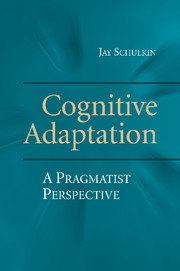Book contents
- Frontmatter
- Contents
- Preface
- Introduction
- 1 Cognitive Adaptation, Objects, and Inquiry
- 2 The Human Situation: Uncertainty and Adaptation
- 3 Time and Memory: Historical Sensibilities
- 4 Educational Sensibilities
- 5 An Instinct for Spiritual Quests: Quiet Religion
- Conclusion: Demythologized Reason
- References
- Index
3 - Time and Memory: Historical Sensibilities
Published online by Cambridge University Press: 08 August 2009
- Frontmatter
- Contents
- Preface
- Introduction
- 1 Cognitive Adaptation, Objects, and Inquiry
- 2 The Human Situation: Uncertainty and Adaptation
- 3 Time and Memory: Historical Sensibilities
- 4 Educational Sensibilities
- 5 An Instinct for Spiritual Quests: Quiet Religion
- Conclusion: Demythologized Reason
- References
- Index
Summary
Therefore am I still
A lover of the meadows and the woods,
And mountains; and of all that we behold
From this green earth; of all the mighty world
Of eye, and ear, – both what they half create,
And what perceive…
– William Wordsworth, “Lines Composed a Few Miles above Tintern Abbey”We are historical animals. We pass time, and codify it for endless use. Humans not only use the innate clocks endogenous to our biological system but also expand them to the ontological condition of being part of the larger world. The background for historical sensibility is grounded in our evolutionary past, with the problem-solving toolboxes that underlie both our evolutionary and our cultural pasts. Consider the psychological and neurological mechanisms of memory that underlie our historical sensibility.
William James (1890/1917) understood that memory, like consciousness, is not a thing but a set of adaptive functions. However, one of the more dubious distinctions is that between cognitive and noncognitive systems in memory; procedural or episodic memory is no less cognitive than declarative or semantic memory. It may be less complex, have fewer inferences, and so on, but one side is not noncognitive and the other cognitive. These are all information systems carried by the brain. Making this point does not discount the important differences in these systems, some of which reach an awareness level and are more transparent (declarative memory versus procedural systems: knowing how to do something versus knowing that I know how I know to do something; Mishkin, 1984; Ryle, 1949; Squire, 1987).
- Type
- Chapter
- Information
- Cognitive AdaptationA Pragmatist Perspective, pp. 67 - 93Publisher: Cambridge University PressPrint publication year: 2008



